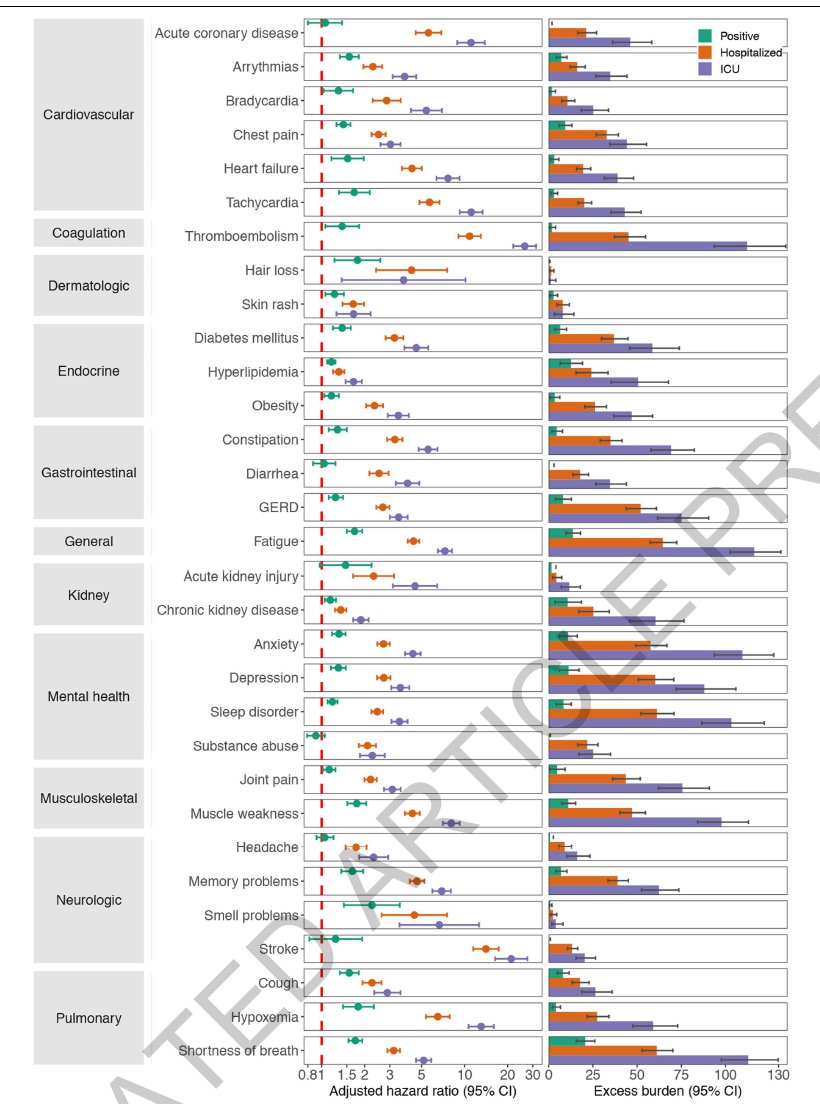Post-covid provides an opportunity for important research
The symptoms of long-term covid are very similar to those of chronic fatigue syndrome, and both affect women of working age to a large extent. The pandemic provides an important opportunity for research that can increase knowledge about these conditions, writes Sven Britton, professor of infectious diseases. [...]
PASC has a lot in common with the syndrome ME/CFS (myalgic encephalomyelitis/chronic fatigue syndrome) which can be translated into muscle pain with inflammation in the brain and spinal cord with prolonged fatigue. The condition begins predominantly with an infection where several infectious agents are indicated with the common denominator that all of them - like SARS-cov-2 - can infect the central and peripheral nervous system and that they also normally give rise to relatively long-term but still transient fatigue, for example glandular fever.
ME/CFS mostly affects women of working age, the symptoms are largely the same as in PASC. Approximately 1 percent of the population is estimated to suffer from ME/CFS, which results in a lot of suffering and large individual and societal costs because patients are not able to work for a very long time. There is no cure and no simple and practical test that can confirm the diagnosis.
The latter makes the delimitation difficult and we who work with these patients almost have to hire legal expertise to write a medical certificate that the Swedish Social Insurance Agency approves. The most "specific" symptom is severe and prolonged deterioration after physical exercise, which otherwise improves almost all other disease states.
Despite the fact that there may be around 100,000 people in Sweden with ME/CFS, there are very few specialist clinics, in Stockholm only one, which is why patients are referred to the health centers. There, knowledge about the disease is limited and the treatment is often incomprehensible.
At the specialist clinics, investigations are made which, as no cause or treatment is known, include doctors of different specialties, specialist nurses, physiotherapists, psychologists, dietitians and occupational therapists where they jointly try to arrive at the mix of measures that alleviate each patient's symptoms. Perhaps the most important thing for the patients, however, is that they are met with understanding and gain a share of the still incomplete knowledge about the disease that exists. The questioning of their disease by the people around them, by which many, including outside social media, is suggested to point to an imaginary illness, further adds to the suffering of these patients.
Unfortunately, only a small proportion of patients are fully fit for work even five years after the illness. As an example I can mention a patient who has been my student and is now a complete anesthesia/intensive care physician for a long time, intellectually and physically very active, but who after the illness has been more or less bedridden for several years behind closed blinds.
But now there is new hope! If PASC (postcovid) turns out to be a condition that can be categorized as ME/CFS, there are completely different possibilities to arrive at an understanding of the origin of the disease and perhaps also its treatment. [...]
In Sweden, special clinics have been set up for postcovid patients at several of the university hospitals, and it is important that these receive sustainable resources. It is now that the chance exists to arrive at a better knowledge of enigmatic and difficult conditions such as PASC/postcovid and ME/CFS.





